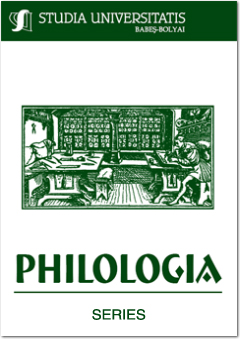CHANGEMENT ET RÉSISTANCE DANS LE “PHONOSYMBOLISME” ITALIEN
CHANGE AND RESISTANCE IN ITALIAN ‘PHONOSYMBOLISM’
Author(s): Alberto MancoSubject(s): Language and Literature Studies
Published by: Studia Universitatis Babes-Bolyai
Keywords: Italian; change; resistance; phonosymbolism; mangiare.
Summary/Abstract: Change and Resistance in Italian ‘Phonosymbolism’. I have studied the etymology and phonosymbolism of three verbs used in Dante’s Divine Comedy, Volume 1, Hell to describe the act of eating a skull: manducare, mangiare, manicare. In popular Italian, "eat" seems to have been inherited from the verb magnare, and /GN/ is simply the expressive popular trait of that verb. Linguists tend to focus on the /GN/ as a "degeneration" of the /NG/ group, but they do not focus enough on the resistance of the /NG/ group. My goal here is to demonstrate that mangiare-magnare does not form a couple. These two entities are following their own history, independently of one another. Therefore, the traditional and consolidated fact that magnare would be an "expressive degeneration" of mangiare could be reviewed.
Journal: Studia Universitatis Babes-Bolyai - Philologia
- Issue Year: 56/2011
- Issue No: 3
- Page Range: 85-92
- Page Count: 8
- Language: French

